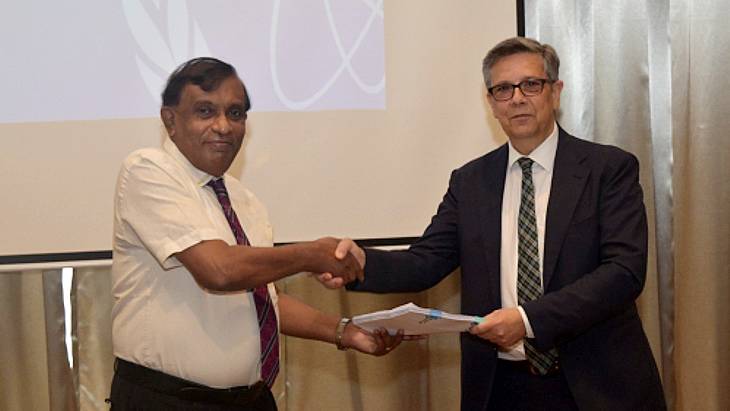Sri Lanka is looking at nuclear power as part of measures to increase and diversify its power capacity as well as cut its carbon emissions as it seeks to achieve a carbon neutral electricity sector by 2050.
The IAEA’s Integrated Nuclear Infrastructure Review (INIR) focused on the first stage of the IAEA’s Milestones Approach’s three-phases of development - consider, prepare and construct.
INIR team leader Jose Bastos, from the IAEA’s Nuclear Infrastructure Development Section, said: “The INIR team concluded that Sri Lanka has engaged the relevant stakeholders in considering the introduction of nuclear power and initiated the appropriate studies to enable the government to make a decision on the nuclear power programme.”
The INIR team added that the country needed to "further develop its pre-feasibility study on introducing a nuclear power programme" and "the country also needs to complete its analysis of the legal and regulatory framework required for nuclear power, including preparations for establishing an independent regulatory body. Moreover, the team raised the need to further develop relevant human resources and competencies required for a nuclear programme. It called on the country to further intensify its already promising stakeholder involvement activities."
The chairman of the Sri Lanka Atomic Energy Board, Professor S R D Rosa, said: "Electricity is vital for society’s functioning, and the steady production of nuclear electricity will help us avoid shortages and outages. The results of this INIR mission will help us to move forward with the next steps in nuclear power development as Sri Lanka strives to further develop its economy and achieve the goal of zero emissions."
INIR missions enable IAEA member state representatives to discuss with international experts experiences and best practices in different countries. Implementation of any of the team's recommendations and suggestions is at the discretion of the Member State requesting the mission. The IAEA publishes the INIR mission report on its website 90 days after its delivery to the member state, unless the state requests in writing that the IAEA should not do so.
The INIR team in Sri Lanka was made up of five international experts - from Algeria, the Czech Republic, Romania, the UK and the USA - and also four IAEA staff.





_23009.jpg)
_33392.jpg)
_53504.jpg)







